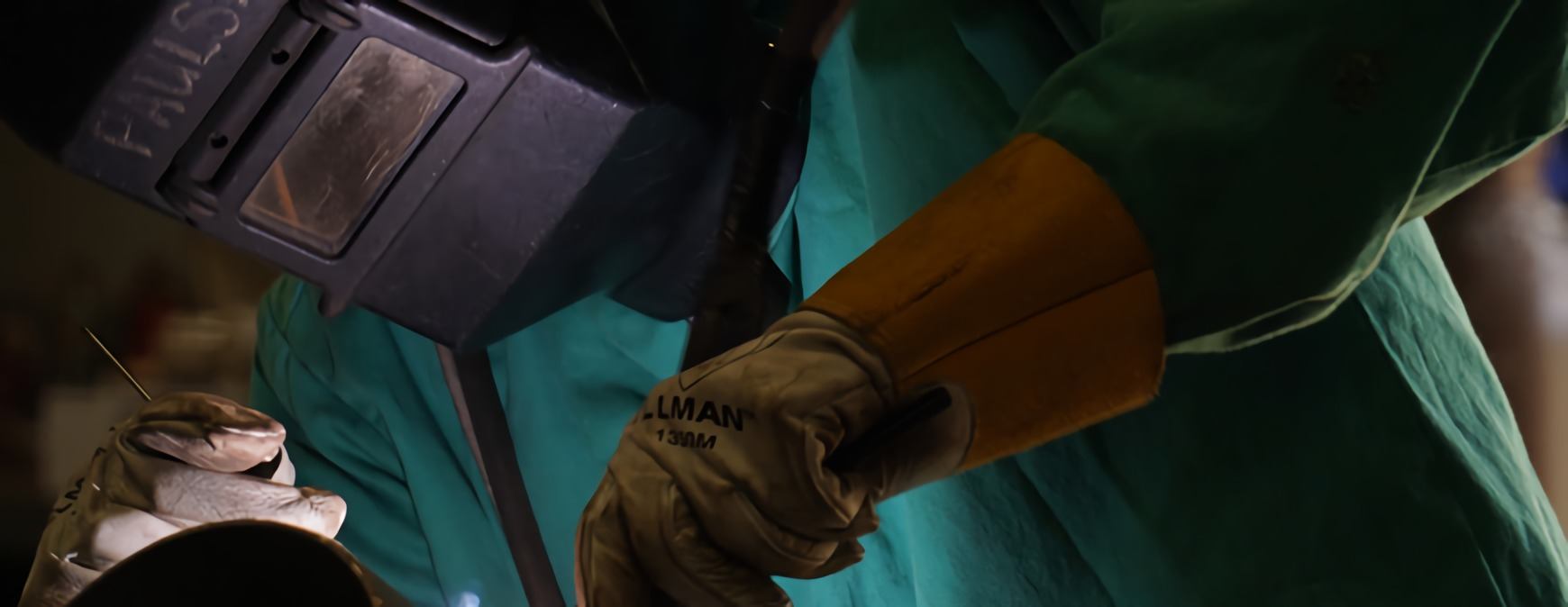RSI is a Great Training Option for Everyone
Learn more about how we can prepare you to advance your career.
Some people don’t want to stick around one place for too long. It can be stifling to stay put, and exciting to see new places and meet new people. Do you love to travel and want to see the world after high school?
If you are considering a career in welding, you could specifically look for a job that allows you to travel after you complete welding training. While some welding jobs can be based in one location, there are also plenty of welding jobs that require travel, either locally or nationally, sometimes even internationally.
Local, National, or International Travel
The welding industry is very broad, and many different industries require skilled welders, such as manufacturing, car racing, and aerospace.
Welders can decide whether they prefer to stay in one location and work locally, or whether they would rather take a job that requires travel.
Some jobs may have a base location, and then require welders to travel locally or to different states for a set period, returning home after the work is completed. Other jobs may send welders overseas or to offshore locations.
Get Started on the Path to a New Career
Fill out our form to learn how we can help you change your life.
Traveling welder jobs are a far cry from your typical 9-to-5 office job. Being a traveling welder, either regionally or internationally, may require odd hours, long periods of travel via car or plane, and long shifts at the work site.
This lifestyle isn’t for everyone, but if you love to travel, see new places, and live a life on the go while doing physically rewarding labor, being a traveling welder could be something to consider as a possible career trajectory after welding school.
Common Types of Traveling Welders
Construction
Welders often work in construction. Their skills are needed to join metal pieces in these types of infrastructure, for example:
- Buildings
- Bridges
- Public works projects
A traveling welding job may send workers to different locations where construction projects are needed, or you could be an independent contractor and take jobs when and where you want to.
Military
Welders can either work for the military as an enlisted service member, or they can be private citizens employed for military jobs occasionally.
Either way, U.S. military bases all over the world often need welders to help with the building and repair of facilities, equipment, and vehicles, which may require some travel.
Shipping
Welding is a big part of shipbuilding, as well as the repair and maintenance of ships and shipyards.
Ships travel across the sea from port to port, so shipyard welders would naturally travel with them on the ships, sometimes even as a permanent crew member.
Industrial Facilities
Sometimes large industrial facilities such as wastewater treatment plants or fuel refineries need to be completely shut down for inspection or repairs. Welders from afar might be hired to get these industrial operations back up and running efficiently.
Boilermakers
In addition to the above industries, a boilermaker is a type of welder who works specifically on large containers that carry liquids and gases. These welders may need to travel to job sites away from home.
How to Get a Traveling Welding Job
Traveling welding jobs generally require the same basic types of skills as a non-traveling job. But different welding traveling jobs might have different requirements depending on the employer and the circumstances:
- Different levels of experience
- Different certifications
- Different specialties
As mentioned above, some industries rely more heavily on welders who can travel than others.
Here are a few of the highly skilled welding tasks both traveling and non-traveling welders need to be able to perform:
- Reviewing blueprints
- Calculating dimensions
- Operating equipment
- Performing the necessary welds
The Welding Specialist Training Program at RSI teaches students welding fundamentals for an entry-level job, including SMAW, GMAW, TIG, structural, and pipe welding techniques.
After welding training, further specializations and certifications can be acquired by passing specialized welding tests with the American Welding Society (AWS).
Application Requirements for Traveling Welding Jobs
One of the best ways to find out what kind of skills you’ll need for a traveling welding job is to browse job listings on sites like Indeed or ZipRecruiter.
These listings will update over time with available job positions for traveling welding jobs and can give you a pretty good idea of what you will need to do to be a competitive candidate.
Some traveling welding jobs hire welders as trainees, while others prefer welders with a few years of experience.
Many employers require welders to pass a performance test with the specific types of welding that they will need.
Some employers will only hire welders who can show proof of welding training from a reputable welding school.
Some jobs will require additional certifications or abilities.
Most employers of traveling welding jobs will specify what type of travel will be required, such as a 10-day tour with 10-12 hour days. They will also usually specify whether the travel is expected to be paid out of pocket by the welder themselves, or whether the employer is offering compensation for travel expenses, such as per diems.
Each traveling welding job will be unique to that employer, region, and type of job duties required. If you’re interested in getting a career started in welding after you graduate high school, and you have your sights see on traveling, consider enrolling in a welding training program to begin building a strong foundation of skills.
Additional Sources
This blog has been labeled as archived as it may no longer contain the most up-to-date data. For a list of all current blog posts, please visit our blog homepage at https://www.rsi.edu/blog/




